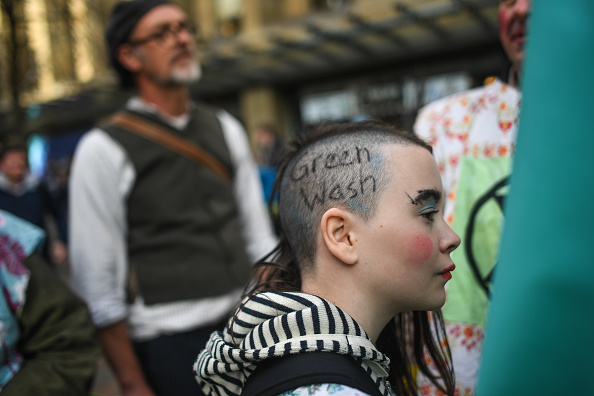Better regulations, not more, are the answer to greenwashing controversies

Last year, we talked a lot about climate action and what the financial industry could do to make a difference. At Cop26, the former governor of the Bank of England Mark Carney unveiled his brainchild for combating climate change: the Glasgow Financial Alliance for Net Zero. At the time, Carney boasted $130tn mobilised in pursuit of net zero. What he meant was the total capital of the 450 companies that signed up to the initiative. To inattentive ears, however, the number could have been misinterpreted as the amount of money raised for the green cause.
If a person like Carney, who really should know better, uses this equivocal language, what about all the companies that are supposedly supporting green and sustainable schemes? The numbers that are thrown around are often dizzyingly high.
As the numbers climb, a host of national and international regulators have swooped in to try and make sense of it. The Financial Conduct Authority (FCA) and the International Organisation of Securities Commissions (IOSCO) are only two among the many institutions that met at the climate summit last year to strengthen their anti-greenwashing commitments. They want to develop new regulations involving more disclosure requirements from asset managers and set global standards. There is a general consensus that the main issue with ESG greenwashing is a lack of clear definitions and common standards. The regulators are positive that brand new rules will solve this once and for all.
At the Cop26 Green Horizons Summit Ashley Alder, chair of the IOSCO board, described the establishment of an International Sustainability Standards Board as a “pivotal moment”. The International Financial Reporting Standards Foundation (IFRS) will chair it, leading efforts to create baseline disclosure standards.“This can cut a clear pathway to the adoption of a mandatory standard if jurisdictions choose to take that route”, he said.
Once again we are faced with the old mess of having to convince jurisdictions across the world – with very different definitions of greenwashing and even different understandings of the climate crisis – to adopt universal standards. Some investors are worried that the big emitters will never capitulate, and that companies will just relocate where regulations are more lax.
The solution flagged by regulators is more and more rules – a bottomless well of greenwashing directives. In some senses, at least it shows a real effort to tackle a vicious problem that could hamper the financial industry’s efforts to reach net zero.But if banks are forced to deal with never ending red tape, it hardly creates an environment conducive to investment.
Steffan Williams, partner at Williams Nicolson, says in investor circles, scepticism is rife. “Some investors think regulators are just replicating what they have already said and done. I don’t hear them saying ‘regulators are coming to our rescue’”, he says. Investors are increasingly ploughing money into their own in-house consultants to decipher whether ESG funds and companies are trying to mislead them. As investors get better at picking out greenwashing, it becomes much harder for companies to make up numbers. But we are not in a green la la land where greenwashing can be wiped out solely on an ad-hoc basis. We need regulators to work more closely with investors. And we do need regulations: just better ones, not more of them.
Lee Shankland-Gort, head of social, sustainable and green finance at law firm Addleshaw Goddard, says that funds do a lot of due diligence when it comes to checking companies’ green credentials. Lenders regulations are more complex, he says, because they have to rely mainly on information that’s coming through the sector itself. “I don’t think that at the moment we need more regulation. We might end up being overregulated, and the pace of change will slow down”, Lee says.
If we want sustainable investment funds to use “concise and accessible language” as the FCA chief executive Nikhil Rathi called for at Cop26, then guidelines need to follow the same rules. Some of them are so convoluted and yet so vague that it’s hard to understand what they’re asking from companies. Secondly, demanding more disclosure like the FCA wants to do is fine, but new information can be easily incorporated into current frameworks without having to overturn them completely.
Regulators should focus on strengthening what is already out there, especially in the case of insouciant countries like India, China and Russia, where complying with green standards is too often a matter of choice. The FCA, IOSCO and other regulators around the world have been pioneers in taking the offensive against greenwashing. Now they just need to go back and review their own rules to figure out what’s worked and what hasn’t. That will be the best weapon against green lies.